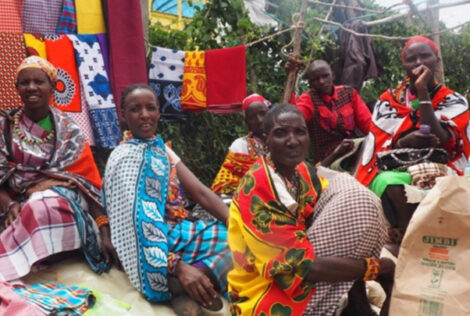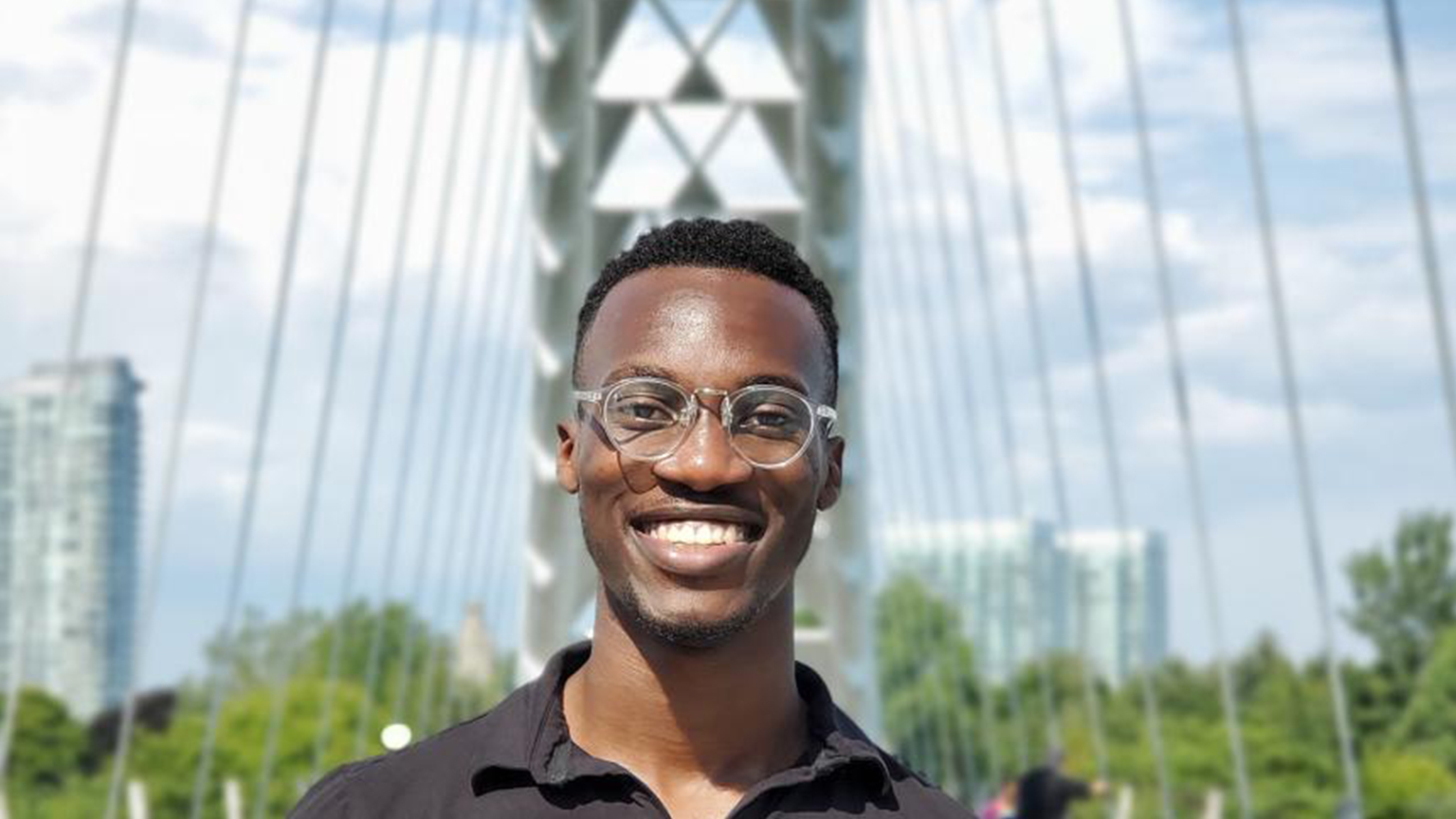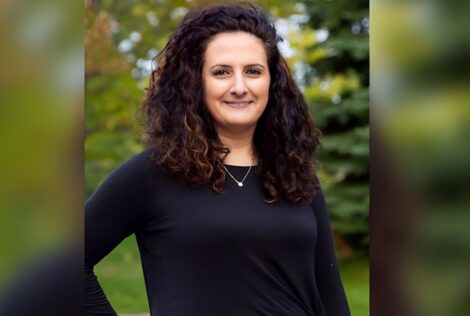

Fadiya is a Management Consultant with Accenture and was recently featured in The Hamilton Spectator for launching his new startup, Gesture Shop, a marketplace for bespoke digital gifts.
He is co-founder of PRSM Medical, a startup that grew out of his Capstone project during his time at McMaster. His team developed, The sKan, a low-cost handheld sensor that leverages cutting edge research in heat mapping technologies and could allow faster, analytics backed diagnosis of melanoma. The sKan was internationally recognized as the 2017 James Dyson Award winner.
In his Q&A Spotlight in celebration of Black History Month, he reflects on what Black History Month means to him, the significance of the new Faculty initiatives that support underrepresented groups, he shares valuable career advice, and more.
You can catch Rotimi on McMaster Engineering’s Instagram Stories next week! He will share his career journey and answer your questions.
Q: What does Black History Month mean to you?
A: Black History Month is not only a celebration of Black History, but it is also a humbling reminder of the work that needs to be done.
I think that Black History Month allows us to celebrate the amazing work that members of the Black community have done; the trials and challenges they have overcome and the tremendous progress that has been made.
I am motivated, encouraged and uplifted by the perseverance of Black leaders in Canada and beyond. It challenges me to continue to push forward with the goal of creating a more equitable and just society.
It is also a sober reminder of the work that we must continue to do to advance equality in our society.
Though we have made tremendous strides to building a more fair and just society, that work must continue. This month reminds us of our responsibility to fight for the marginalized members in our society.
Q: Who is your role model?
A: For as long as I have been a basketball fan I have loved LeBron James. Growing up, I wanted to play like him. I admired his mesmerizing athleticism and skill, his dedication to his craft and overall greatness in the sport. But as I have matured, I have come to appreciate the finer details of his story.
LeBron grew up poor in the predominantly black city of Akron, Ohio, but never forgot his roots and committed to philanthropic efforts to support his hometown. One notable initiative was the I Promise School which works to close the achievement gap of underachieving elementary school children. He reminds us that achieving greatness, and building a legacy is more than what you do in your profession.
Q: What do you think about some of the new equity, diversity and inclusion initiatives from McMaster Engineering including the new IBET Fellowship and the NSBE Scholarship?
A: I’m thrilled! These EDI initiatives speak to McMaster’s intentionality in fostering a more diverse and inclusive community. There is of course the monetary sense of how these scholarships provide financial relief to students but there is also the broader statement that this makes about McMaster and Mac Eng’s advocacy and support for black engineering students is so important.
It makes such a big difference coming to a school that you see making an active effort to support black students in a tangible way.
This is the type of initiative that attracts top diverse talent and I believe that McMaster will see amazing individuals of diverse backgrounds drawn to the school as a result. I believe that this is just the beginning for McMaster.
Q: Can you tell us how Gesture Shop came to be and how your McMaster Engineering experience influenced your career path?
A: My most recent startup, Gesture Shop, is a marketplace for bespoke digital gifts. At Gesture Shop, freelance creatives can sell various digital gifts such as commissioned art, personalized songs, poetry, spoken word to help anyone create unique and highly personalized gifting experiences.
This idea started with a personal pain I had of being a pretty terrible gift giver myself.
About two years ago I started playing around with the concept of improving gift giving but it wasn’t until last year, in the midst of lockdown that the concept came together. I saw how creative people could be in expressing themselves through gift giving at a time when they couldn’t be together in person. From there, the concept of highly personalized gifts that you can share with anyone no matter where they were, finally came together.
So far in my early career, I have worked as a technology consultant, and started two companies. McMaster Engineering has played a foundational role in each of these areas. The curriculum taught me how to think and approach problems critically and be open to new ways of doing things. The culture of collaboration helped me meet lifelong friends doing amazing and very diverse things. Also, McMaster Engineering’s focus on entrepreneurship created opportunities for me to test out new ideas.
Q: How did you decide you wanted to be an entrepreneur?
A: I don’t think I ever “decided” to become an entrepreneur and honestly, I actually avoid describing myself as that. I would instead say that I’m simply someone who is interested in great ideas and trying to see if I can make them work.
I think people sometimes develop an image of an entrepreneur being big risk takers, visionary, having world-altering ideas and that deter them from trying their own ideas out. But if we just give ourselves the grace to explore ideas no matter where we are, you’d be shocked where they can lead.
Personally, a lot of my ideas have been in traditional roles within places I’ve worked. And I think that is often the best place to play with ideas, even just small ones. You can learn a lot by just trying to improve how things work in small settings. And every once in a while, an idea starts to take you beyond what you can feasibly do within a company.
Q: Any career advice for Mac Eng students?
A: Two things; I think the first is simply to take in as much as you can during your time at McMaster. Your education is very important and should be foundational to your experience, but the most valuable experiences will come outside of the classroom.
Five years after graduating, the things that you will value most will not be your GPA, it will be the friends you made, the clubs you led or the late nights you spent in Thode studying with friends.
Secondly, you don’t need to have things all figured out. I remember how stressed my friends and I were during school, about which program to pursue, what courses to take, which internships we were doing, what clubs to join, which full time offers we had, etc. The worries were endless. And there was some belief that once we graduated and started working, this would go away – but it doesn’t.
So give yourself some grace to embrace the uncertainty of life. You will be fine, take the best opportunity that you have at each juncture and then just enjoy the journey, things have a way of working themselves out.

